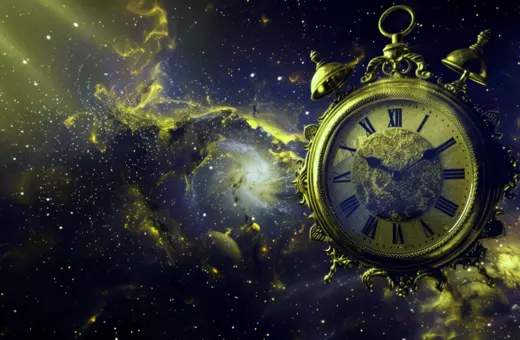There is a complex interplay between our intuitive understanding of time's transient nature and its representation in modern physics as a dimension. We need to challenge the mainstream view of time as an illusion, and instead seek something that integrates the concept of Becoming into the very fabric of reality, writes Avshalom Elitzur.
It is perhaps the most fundamental ingredient of our experience that reality is constantly changing: Every moment, in its turn, seems to bring new events that did not exist before and that will vanish later. Every event, therefore, has three temporal properties that come one after another: i) before the event takes place it is a potential future event, subject in principle to interference; then, ii) when it actually happens, it is a fleeting present, and finally, iii) after its occurrence, it is a given, unchangeable past. In everyday language, there is a temporal property –– the Now – that continuously moves from one moment to the next, from every event to the following one. Conversely, we may view time itself as passing relative to us, its passage being experienced as the change of the future into present and then into past. Reality, then, seems to be subject to an incessant Becoming.
Trivial statements, one might say, not worth our time. Well, welcome to an ancient realm of paradoxes. Elementary logic proves that these statements are not trivial – they are simply wrong. Any statement like “time flows/passes/moves” is bound to produce gross inconsistencies. For the very concept of movement is based upon that of time; saying that an object “moves” amounts to saying, “it is in one position at one moment and in another position at the next.” But how can such a statement be made on time itself?
To see the absurdity of granting it motion, just ask yourself what is this motion’s velocity! The same contradiction besets the statement “we move in time.” To say so, one must regard time as a sort of “space” in which we move, thereby necessitating another time. Neither shall we avoid absurdities by saying “the future changes into present and then into past.” If “change” denotes different states at different moments, how can the moment itself change its designation from future to past? Would such occurrences not require another time within which the passage or change of time itself occurs?
___
We have every reason to think of the passage of time as an illusion.
___
It is to physics, the most fundamental of sciences, that we turn in search for an answer. But upon turning to this promising path, let us be prepared to find our problem becoming only worse.
The best introduction to our problem is Newton’s (1686) famous statement:
Absolute true and mathematical time, of itself and by its own nature, flows uniformly, without regard to anything external.
In modern textbooks, this passage is routinely quoted in order to show the inadequacy of the Newtonian assumption of absolute time. This is relativity theory’s seminal point of departure, to which we shall return later. But Newton’s statement contains an even more basic fault, noticed long before relativity: The statement “time flows” is meaningful only if one assumes that there is another, higher order time within which our ordinary time flows. Otherwise we would face an awkward in our equations. But that additional time, assumed to govern time’s passage, would, by the same reasoning, necessitate introducing a yet higher order time parameter and so on ad infinitum.





















Join the conversation